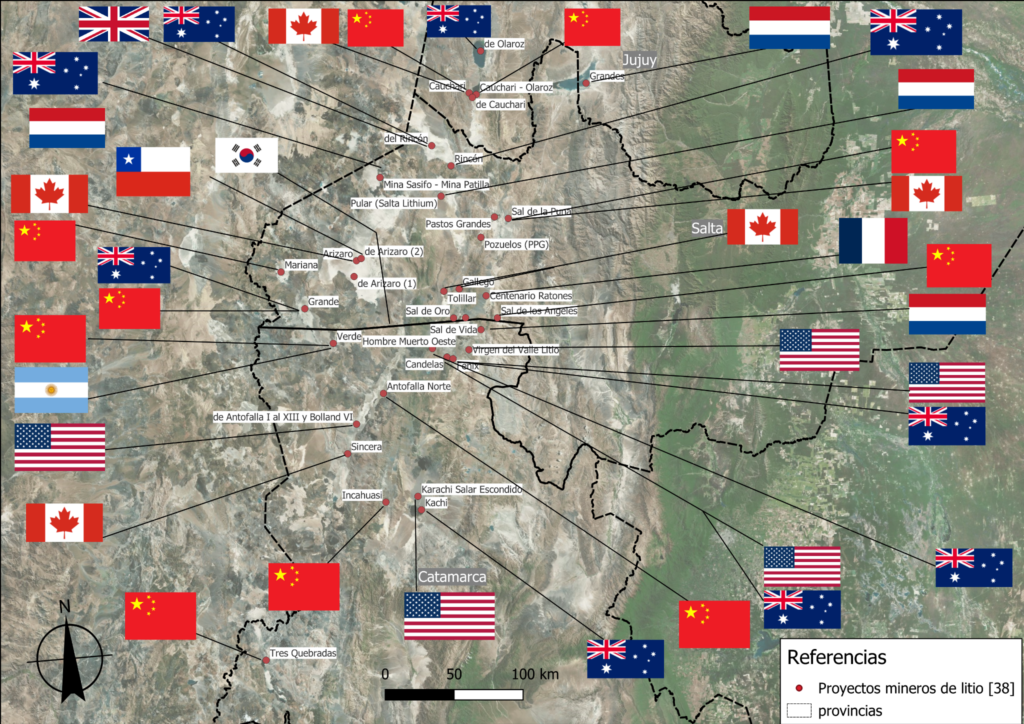The political, economic, social, and environmental scenario in Argentina is marked by continuous setbacks in terms of rights. The far right is advancing rapidly and simultaneously across several fronts, undermining our democracy and our social fabric. In the first few months into the Milei administration, we saw how the effects of neoliberal policies directly impact the people’s lives, especially in grassroots sectors, where the state remains absent and continously alienated from them. The president aims to impose market rules on all social relations, using the destruction of state structures as his main tool. The institutional reform is so broad that a Ministry of Deregulation and State Transformation was created with the sole purpose of “reducing public spending.”
Meanwhile, a few days after the presidential inauguration, the Ministry of Security created the so-called Public Order Maintenance Protocol, a mechanism to criminalize protests and social organizations. The protocol criminalizes street and road blockades, which means that anyone who takes part in a demonstration could be considered a criminal. It’s worth pointing out that the protocol is unclear about the use of National Security forces and it does not expressly states that they cannot use firearms.
This context has led to the institutionalization of a number of measures that the administration has been implementing since it rose to power: thousands of people laid off from the state; reduced number of national ministries (including the Ministry of Environment and Sustainable Development and the Ministry of Women, Gender, and Diversity); a sharp depreciation of the national currency; the withdrawal of funds from transportation and basic services, which has led to huge fare hikes; the defunding of public universities and the national science system; the shutdown of public media outlets; the shutdown of national bodies dedicated to protecting human rights, LGBTQI+ rights, and Indigenous rights; the ban on the use of concepts including “climate change,” “agroecology,” “gender,” and “biodiversity” in state-linked spaces; the discontinuation of food supplies to community kitchens; the end of the distribution of free medications to cancer patients and patiens with chronic conditions; budget cuts in the public health care system; and others.
This combination of measures directly affects the family economy, increasing the rates of poverty and misery. One of the latest actions taken by the government was to veto a law that aimed to increase minimum pension payments to more than 8 million retirees who are currently living below the poverty threshold.
This setback happened through the bill “Foundations and Starting Points for the Freedom of Argentinians,” which the country’s Congress passed despite massive grassroots mobilizations against it. While the project was being considered in parliament, National Security forces were brutally cracking down on protests. According to the Center for Legal and Social Studies (CELS), the crackdown resulted in 665 injured people in the city of Buenos Aires alone. Forty-seven media professionals were injured and 80 people were arbitrarily arrested in protests in the cities of Córdoba, Rosário, and Buenos Aires. The last one to be released spent three months in a maximum security prison facing “terrorism” and “coup attempt” charges.
This huge state overhaul law includes the Incentive Regime for Large Investments (RIGI). This new structure was designed to encourage investments in mining, oil, gas, and agriculture for 30 years through tax and customs policies that only benefit foreign capital. The RIGI aims to consolidate a pattern of productive specialization in which Argentina becomes a mere commodity exporter in a process spearheaded by transnational corporations, leaving the country’s productive structure completely out of it. Under this regime, transnational corporations must deliver 40 percent of their initial investment in the next two years. After the third year, they are completely free to use the dollars generated through exports, which will reduce the country’s foreign currency availability in the future. Not only that, they will also be able to enjoy tax benefits for 30 years.
The Map of Contemporary Colonization: Lithium in Argentina Under Transnational Control
Lithium is a natural common good that plays a strategic role in the energy transition, and it is key in the geopolitical battle. To address this matter comprehensively, it is crucial to look into not only the RIGI, but also Milei’s performance in the international arena, which is completely aligned with US interests. Since he took office as president, Milei has made 12 international trips and spent 47 days abroad, mostly in the United States. His connections with Elon Musk, who is also after Argentinian lithium for his company Tesla, are well known. In one of his many trips to the US, Milei met with Musk and made deals to eliminate “bureaucratic barriers and promote the free market.” Another of his destinations was Spain, where he introduced his book Capitalism, Socialism, and the Neoclassical Trap and attended an event hosted by the ultra-right party Vox.
Argentina holds the world’s second largest lithium reserve and is part of the so-called “lithium triangle” with Chile and Bolivia. While lithium is considered a strategic resource in countries including Chile, Bolivia, and Mexico, in Argentina the law continues to serve the interests of big corporations. The loss of national sovereignty regarding our strategic goods paves the way for unbounded spoliation by transnational corporations, thus perpetuating a dependent, extractivist economic model that generates poverty in the areas from where wealth is mined.
While lithium mining started in the 1980s, operations became more intense in the first and second decades of the 2000s. Lithium exports have grown rapidly since then. In Argentina, lithium production has spiked 72.2 percent in 2020 over 2015, according to 2021 data from the Department of Mining.
At Tierra Nativa, we have mapped lithium projects operating in the country. We can see on the map how foreign control strikingly characterizes this sector. Our georeferenced mapping shows the concentration of lithium projects controlled by transnational corporations from the global North, which makes it a key tool to understand the new forms of economic and environmental colonialism operating in our region. It also allows us to conceive strategies for a just energy transition.

For a Just and Grassroots Feminist Transition
Right now, the era of non-renewable resources, like oil and natural gas, is coming to an end, and this is not only due to their finite nature, but also because scientific evidence comprehensively shows how much pollution they generate, accelerating climate change. This topic is on the agenda of the North, the South, multi-lateral organizations, states, and, above all, big corporations.
Our energy system is a colonial system ruled by big transnational corporations, with concentration of properties, privatization of public companies, increasing consumption, and increasing participation of corporate power in state energy policy. Latin America, the Caribbean, Africa, and most of Asia are marked by the exploitation of territories and sacrifice zones. Indigenous peoples, Black people, and peasant communities are in the front lines fighting large-scale extractivist projects in our South.
Energy poverty is a reality in our countries and it aggravates inequalities. The commodification of energy and high energy prices prevent poor families from having ensured access to this service. The use of wood and coal to cook greatly increases in times of crisis and affects especially women’s everyday lives and health, as they are responsible for the tasks related to care and the reproduction of life.
The energy industry is one of the main responsibles for environmental conflicts and violation of rights of the peoples and territories. The energy policy is deeply connected to geopolitics, to development policies, and the interests of transnational capital in agribusiness and the fossil fuel and mining industries. The control over reserves and the battle waged by transnational corporations to exploit these reserves are part of the motivations for coups and interventions in political processes in Latin American countries. This became clear in the 2019 coup in Bolivia, when Elon Musk’s company landed in Brazil during the Jair Bolsonaro administration, and in its recent arrival in Argentina under Milei.
The battle over this “transition” affects our democracies. It therefore also affects the just and sovereign lives of our peoples. It is imperative and urgent to think about how we are going to organize ourselves so that this transition happens from a grassroots feminist perspective. That is, a process that builds strategies against the different systems of gender and class oppression while also fighting racism, colonialism, fascism, and imperialism.
In this sense, Tierra Nativa advocates the economic and political sovereignty of states, the nationalization of strategic goods, the building of public policies and state planning from the grassroots, and the strengthening of regional bonds as a fundamental strategy. Hopefully this discussion will provide resources to continue to conceive new horizons.




